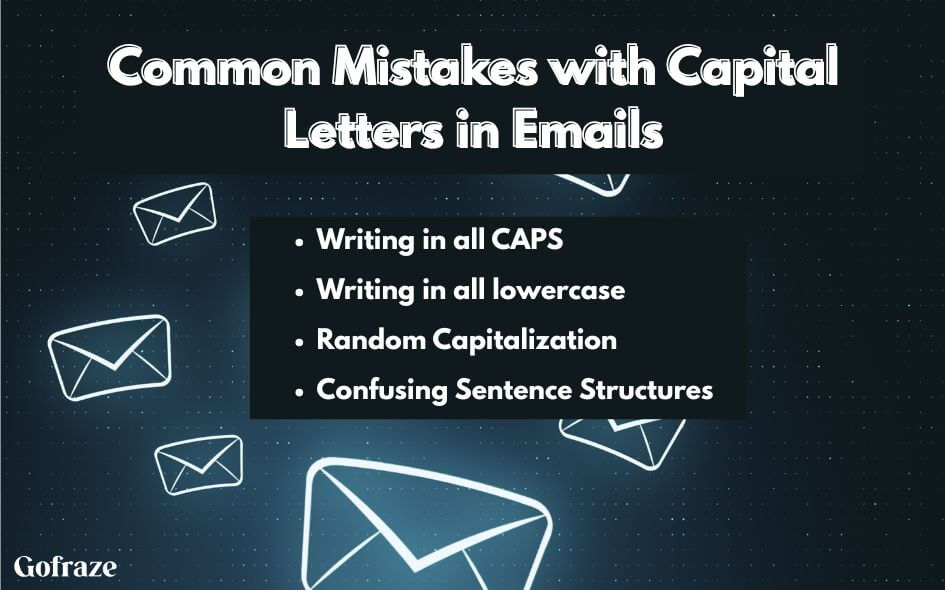Email Marketing for Car Dealerships: Strategies, Ideas & Best Practices
Explore powerful email marketing strategies for car dealerships. Learn to attract, engage, and convert leads into loyal customers with ease.
Imagine receiving an email that reads, ” Hi John, I hope you had a good weekend. I just wanted to remind you about the meeting tomorrow.” Now imagine one that reads, “Hi John, I hope you had a good weekend. I just wanted to remind you about the meeting tomorrow.”
Which one do you feel more inclined to respond to? The answer is almost always the second. Do Capital Letters Matter in Email? Absolutely. Capitalization is a small yet powerful part of email communication that sets the tone, shows professionalism, and conveys clarity.
In today’s digital age where first impressions are often made through emails, understanding the role of capital letters can be the difference between being taken seriously or being ignored.
In this article, we’ll explore the function of capital letters in email writing, the consequences of misuse, and practical guidelines to help you communicate more effectively.
Before discussing their impact on email communication, let’s refresh ourselves on what capital letters are used for in the English language.
1. Starting Sentences: Every sentence in English begins with a capital letter. This helps visually indicate the beginning of a new thought or idea, aiding comprehension.
Example:
2. Proper Nouns: Names of people, companies, locations, and specific events or titles must always be capitalized.
Examples:
3. Acronyms: and initialisms like “CEO,” “NASA,” and “ASAP” are capitalized to indicate that each letter stands for a separate word.
4. Emphasis: Sometimes, capital letters are used for emphasis, but this must be done carefully to avoid appearing aggressive or unprofessional.
Example:
Yes, capital letters matter in emails because they affect how your message is perceived. Proper capitalization shows professionalism, clarity, and respect, while all caps can seem aggressive and all lowercase may come off as careless or unprofessional. Using the right capitalization helps ensure your message is taken seriously and understood clearly.

Professionalism: Proper capitalization demonstrates a level of polish and attention to detail. It shows the reader that you take your communication seriously, which reflects positively on your professional image.
Readability: Emails with correct capitalization are easier to read. They follow familiar sentence patterns, making your message more accessible and digestible.
Tone: Capitalization affects tone significantly. For instance, “THANK YOU” can feel like shouting, while “Thank you” sounds polite and sincere. Lack of capitalization can seem indifferent or rushed.
Credibility: An email full of capitalization mistakes can come across as spammy or fraudulent. Recruiters, clients, and managers may question your credibility if your writing appears careless.

1. WRITING IN ALL CAPS: Using all caps is equivalent to shouting in digital communication. It’s overwhelming and can come across as rude or aggressive.
Example:
2. Writing in all lowercase: This can make your email seem lazy, unprofessional, or even disrespectful. It implies that the sender didn’t put in the effort to write properly.
Example:
3. Random Capitalization: Capitalizing random words mid-sentence can confuse the reader and undermine your credibility.
Example:
4. Confusing Sentence Structures: Without proper capitalization, it becomes harder to identify sentence boundaries, leading to potential misinterpretations.
1. Acronyms and Abbreviations: All caps are appropriate when using standard acronyms or abbreviations.
Examples:
2. Subject Lines for Emphasis: All caps can be acceptable in email subject lines for specific, urgent communication.
Example:
Use sparingly and only when the situation truly warrants attention.
3. Very Short Urgent Notes: In time-sensitive scenarios, using all caps in a short message may be appropriate.
Example:
Let’s compare real-world examples of how different capitalization affects tone.
Example 1: “THANK YOU” vs. “Thank you”
Example 2: “hi john” vs. “Hi John”
Side-by-Side Examples
Proper capitalization reinforces tone and intent.

1. Always capitalize the First Word of a Sentence: Start every sentence with a capital to make your writing clean and professional.
2. Use Correct Capitalization for Names, Titles, and Organizations: Respect is shown through proper names and titles.
Examples:
3. Avoid Using All Caps for Full Sentences: Resist the urge to emphasize entire sentences with caps. Use bold or italics if needed.
4. Be Consistent Throughout the Email: Inconsistencies in capitalization can distract your reader and reduce the impact of your message.
Understand how capital letters impact your message. Avoid common email pitfalls and boost clarity with expert writing tips from Gofraze.
Capital letters in emails may seem like a minor detail, but they have a major impact on how your message is received. From professionalism and tone to readability and credibility, proper capitalization signals that you respect both your reader and the content of your message. In a world increasingly reliant on digital communication, mastering this fundamental aspect of writing gives you a distinct edge.
Whether you’re sending a job application, pitching a client, or just replying to a colleague, remember: how you write says just as much as what you write.

Explore powerful email marketing strategies for car dealerships. Learn to attract, engage, and convert leads into loyal customers with ease.

Learn how to craft the perfect webinar invitation email using key tips, templates, and examples to boost sign-ups and engagement.

Discover winning sports newsletter examples, essential elements, and expert tips to craft high-impact email campaigns your fans will love.

Get unlimited forms that turn your traffic into real subscribers — totally free
Start now - free forever